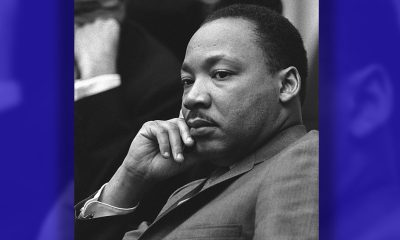Energy
Biden Reveals He’ll Deliver Eulogy for Former President Jimmy Carter
President Jimmy Carter served in the Navy during World War II, and his administration created the U.S. Department of Energy and Education. During his one term, Carter conducted the 1978 Camp David Peace Talks that led to a historic agreement between Israel and its Prime Minister Menachem Begin and Egypt’s President Anwar Sadat. The 98-year-old is the longest-lived President and the one with the longest post-presidency.
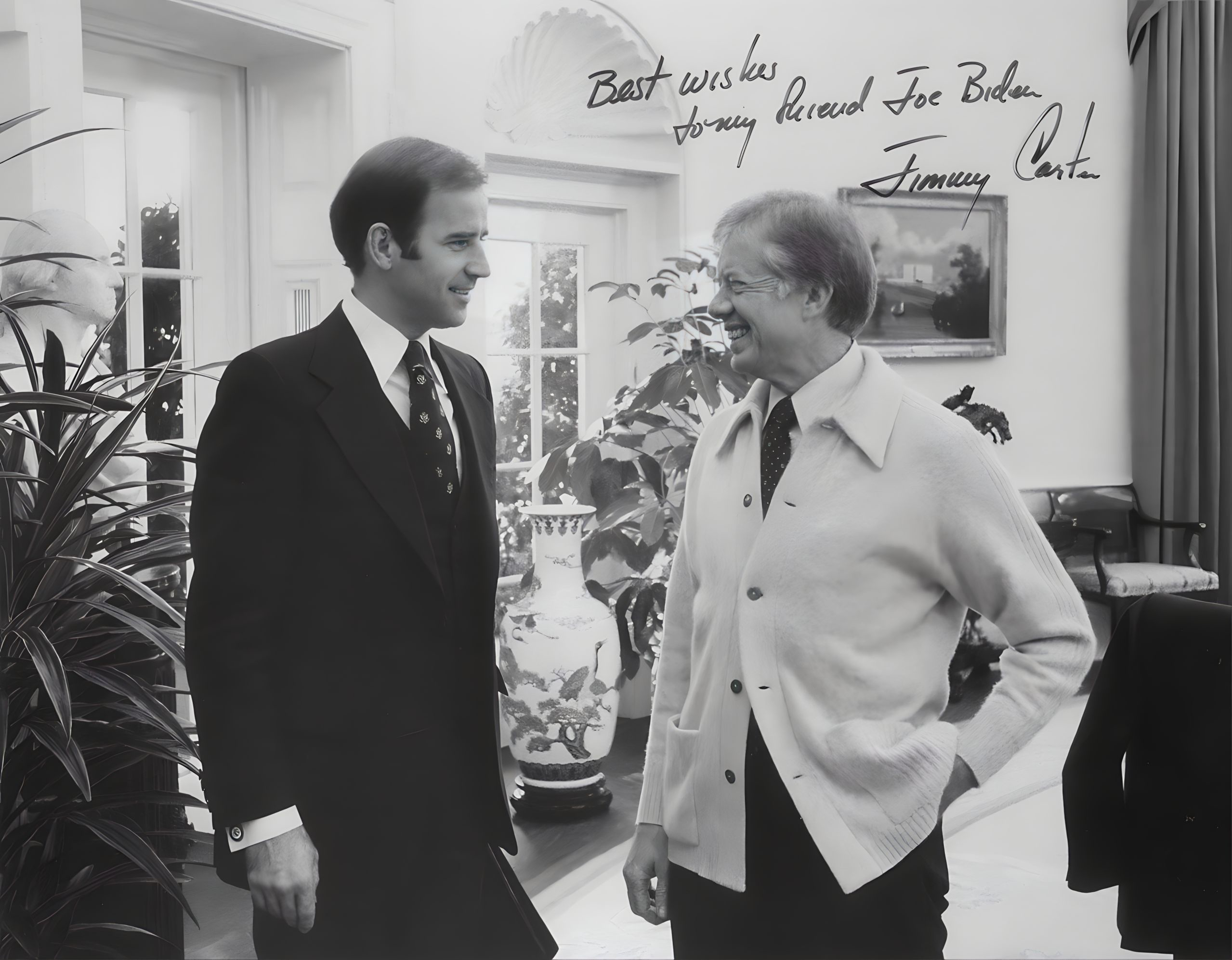
By Stacy M. Brown, NNPA Newswire Senior National Correspondent
@StacyBrownMedia
President Jimmy Carter served in the Navy during World War II, and his administration created the U.S. Department of Energy and Education.
During his one term, Carter conducted the 1978 Camp David Peace Talks that led to a historic agreement between Israel and its Prime Minister Menachem Begin and Egypt’s President Anwar Sadat.
The 98-year-old is the longest-lived President and the one with the longest post-presidency.
On Tuesday, March 14, nearly a month after entering hospice care, it’s been revealed that Carter had asked President Joe Biden to deliver his eulogy.
Biden told donors at a fundraiser about his “recent” visit to see the 39th president, whom he has known since he was a young Delaware senator supporting Carter’s 1976 presidential campaign.
“He asked me to do his eulogy,” Biden said before stopping himself from saying more. “Excuse me; I shouldn’t say that.”
Even though the Carter Center in Atlanta and the former President’s family haven’t said much about his health, Biden mentioned that Carter was diagnosed with cancer in 2015 and then got better.
“I spent time with Jimmy Carter, and it’s finally caught up with him, but they found a way to keep him going for a lot longer than they anticipated because they found a breakthrough,” Biden said.
Carter’s family reportedly has confirmed that a state funeral for the former President will occur in Washington after he dies.
“If people had listened to Jimmy Carter, there wouldn’t be an oil crisis right now,” Twitter user @mikesouthbch wrote.
“He ruled America with kindness and compassion. Nothing you ever see from any Republican.”
Despite a tumultuous presidency from 1976 to 1980 that concluded after the Iranian government released the 55 remaining American hostages there as Carter was exiting the White House following his losing his re-election bid in a landslide to Ronald Reagan.
Carter would become one of the most beloved ex-Presidents in American history, certainly more popular than when he traversed the oval office.
The one-time Georgia peanut farmer and his wife, Rosalyn, have spent their lives helping those in need.
For more than 30 years, Habitat for Humanity officials said the Carters had worked alongside nearly 103,000 volunteers in 14 countries to build, renovate and repair 4,331 homes.
“They’ve inspired millions across the globe with their dedication and rallied thousands of volunteers and even celebrities to take part in our mission, helping Habitat for Humanity become internationally recognized for our work to build decent and affordable housing,” the organization wrote on its website.
The Associated Press noted that Biden’s presidency represented a turnabout for Carter’s political standing.
He served just one term and lost in a landslide to Republican Ronald Reagan in 1980, prompting top Democrats to keep their distance, at least publicly, for decades after he left the White House, the outlet reported.
Presidents Bill Clinton and Barack Obama did not have close relationships with Carter. And the longshot presidential candidates who sometimes ventured to see Carter over the years typically did so privately.
“But as the Carters’ global humanitarian work and advocacy of democracy via The Carter Center garnered new respect, Democratic politicians began publicly circulating back to south Georgia ahead of the 2020 election cycle. And with Biden’s election, Carter again found a genuine friend and ally in the Oval Office,” the AP wrote.
“I remember President Carter’s many talks with ordinary people during that trip, and how he tried to reduce the stigma of HIV/AIDS and help people from all walks of life feel that their lives had value,” Dr. Helene Gayle, the President of Spelman College and a board member of the Bill & Melinda Gates Foundation, wrote in a statement posted to the Gates Foundation website.
“We spoke with commercial sex workers in Kenya and Nigeria about HIV/AIDS prevention and condom use. While President Carter came from a very traditional, religious Christian background, he was entirely nonjudgmental and really wanted to communicate to these women that their lives were worth protecting from HIV/AIDS,” Gayle continued.
“He even gave a sermon at the church of the then-president of Nigeria, and from the pulpit, he talked openly and honestly about condoms and safe sex without judgment or recrimination.”
Gayle added that from world leaders to migrant farmers, Carter’s ability to connect with people remains remarkable.
She called him down-to-earth and approachable.
“And because of his global stature as a former president, he can meet with people at the highest levels of government, capture their attention, and make the case for investing in local, regional, and global health,” Gayle exclaimed.
“He has elevated the significance of global health around the world. And he has been incredibly persistent and diligent around the issue of Guinea worm eradication, helping to lead that campaign to the threshold of success.”
Activism
How a 40-Year PG&E Worker Became a Safety Pioneer
Clifton also received the 33rd John A. Britton Gold Medal Award for rescuing a family from a burning home and started his 40th year at PG&E last October. Over his four decades, the native San Franciscan has been in Electric Operations as an apprentice, journeyman electrician, sub foreman, electrical technician, maintenance supervisor, construction supervisor, and maintenance and construction engineering supervisor.
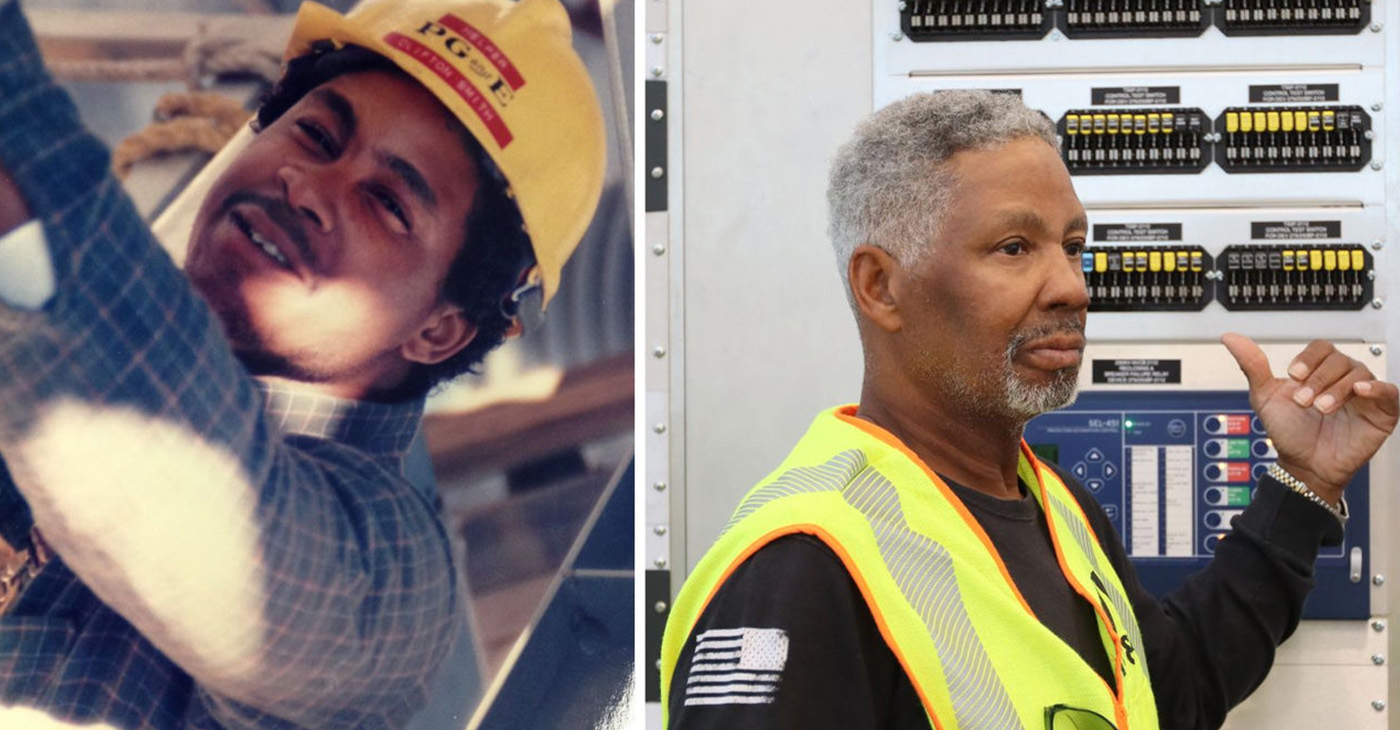
Special to the Post
Sponsored Content
June 14, 2003. A day Clifton Smith Sr. will never forget.
Clifton, then an electrical technician at the Helms Pumped Storage Plant east of Fresno, was an hour into his shift. He was deep inside the underground plant to replace a failed breaker for one of the water pumps.
Clifton and his coworker, Rick Cheney, were placing a rubber blanket over another existing energized breaker. But an exposed wire, combined with other factors, triggered an electrical explosion.
The explosion blew Clifton 15 feet backward. If he hadn’t hit a guard rail, Clifton said he “would have gone over the railing and fallen 50 feet down to the basement onto a concrete floor.”
The accident burned more than 40% of Clifton’s body. “From my belly button all the way up to the top part of my forehead,” he said. “I retain heat from the middle of my chest to my right arm all the way up to just past the elbow. I don’t sweat.”
A champion for safety
He didn’t work for more than two years. As a result of Clifton’s accident, all coworkers at Helms, as well as those working on job sites and locations with gas transmission and distribution, substations, and electric transmission, are now required to wear flame-resistant shirts and pants.
Clifton doesn’t consider himself a pioneer when it comes to raising the safety bar at PG&E. But he was certainly a champion for mandatory FR clothing on the job. Clifton believes 90% of his injuries would’ve been prevented if he had worn FR clothing. He traveled to various PG&E locations to share his story of what happened and to convince coworkers of its importance.
“I have a bucket list of the things our department has done that was substantial in making a big difference in the things we do,” said Clifton. “The FR clothing requirement was one of them.”
Clifton appreciates PG&E’s approach to safety. “Over the last 10 years, we’ve tried to be more proactive than reactive,” he said. “Being reactive tells me you don’t really care about me. Being proactive tells me you genuinely care about my well-being.”
‘I just enjoy teaching’
Clifton also received the 33rd John A. Britton Gold Medal Award for rescuing a family from a burning home and started his 40th year at PG&E last October. Over his four decades, the native San Franciscan has been in Electric Operations as an apprentice, journeyman electrician, sub foreman, electrical technician, maintenance supervisor, construction supervisor, and maintenance and construction engineering supervisor.
These days, he’s a senior technical instructor at the electric training facility in Livermore.
Clifton teaches the basics to apprentice and journeyman electricians as well as the Engineers in Training program. He also instructs refresher courses in substation operations.
“I’m giving my all to see to it that when they come to work,” said Clifton, “they get to go back home to their families and enjoy the benefits of a hard day’s work.”
As a former journeyman electrician, Clifton is also obligated to pass his knowledge forward.
“It’s a code of ethics,” he said. “A journeyman has an obligation. You must train the people below you. You must take your knowledge and pass that on to improve your classification.
“I just enjoy teaching,” added Clifton, who wanted to be a teacher or a football coach before coming to PG&E.
Football is family
Clifton, whose football career was derailed by a knee injury at Fresno State, has lived the dream through his family.
His son, Clifton Jr., was the second undrafted rookie free agent named to the Pro Bowl. During that season, he returned a kickoff 97 yards and a punt for 70 yards for touchdowns. He accomplished those feats in 2008 with the Tampa Bay Buccaneers. Clifton Jr. also played for the Miami Dolphins and Cleveland Browns.
Baseball was also an option for Clifton Jr. Baseball Hall of Fame manager Tom Lasorda tried to recruit him for the Los Angeles Dodgers. “In my opinion, he was a better baseball player,” said Clifton Sr., “but his heart was in football.”
Clifton’s brother-in-law is Tim McDonald, a starting safety on the San Francisco 49ers’ Super Bowl XXIX team. His nephews, Tevin McDonald (formerly Oakland Raiders) and T.J. McDonald (Miami) also played in the NFL. Clifton’s cousin, Terry Robiskie, was an NFL assistant coach for nearly 40 years.
In addition, Clifton’s grandson, Brandon Smith, ran for 1,900 yards and scored 28 touchdowns in leading Fresno’s Central High School to the 2024 California Interscholastic Federation 1-A state championship game.
‘I’d rather look at the blessing side’
As for the future, Clifton wants to work for “as long as I’m healthy. I love what I do.”
What would Clifton like to be known for? “Probably for my honesty,” he said about his speak-up skills. “I’m not afraid to tell you something. It’s like, ‘If you don’t want to know, don’t ask Cliff because he’s going to tell you the truth, whether it hurts or not.’ It has carried me a long way with this company.”
No matter what happens in the future, Clifton will never forget that day more than 20 years ago.
“There was some divine intervention because I shouldn’t be here today,” he said. “I’d rather look at the blessing side of it than anything else.”
Bay Area
Gov. Newsom Looks Back at 2024 Milestones; Presents Vision for 2025
Newsom opened by recounting his announcement atop the Golden Gate Bridge of $150.4 billion in record-breaking visitor spending. He reflected on signing a bill with singer Demi Lovato to protect young content creators from financial exploitation. He celebrated the Olympic flag transfer ceremony, signifying California’s preparation for the 2028 Games in Los Angeles.
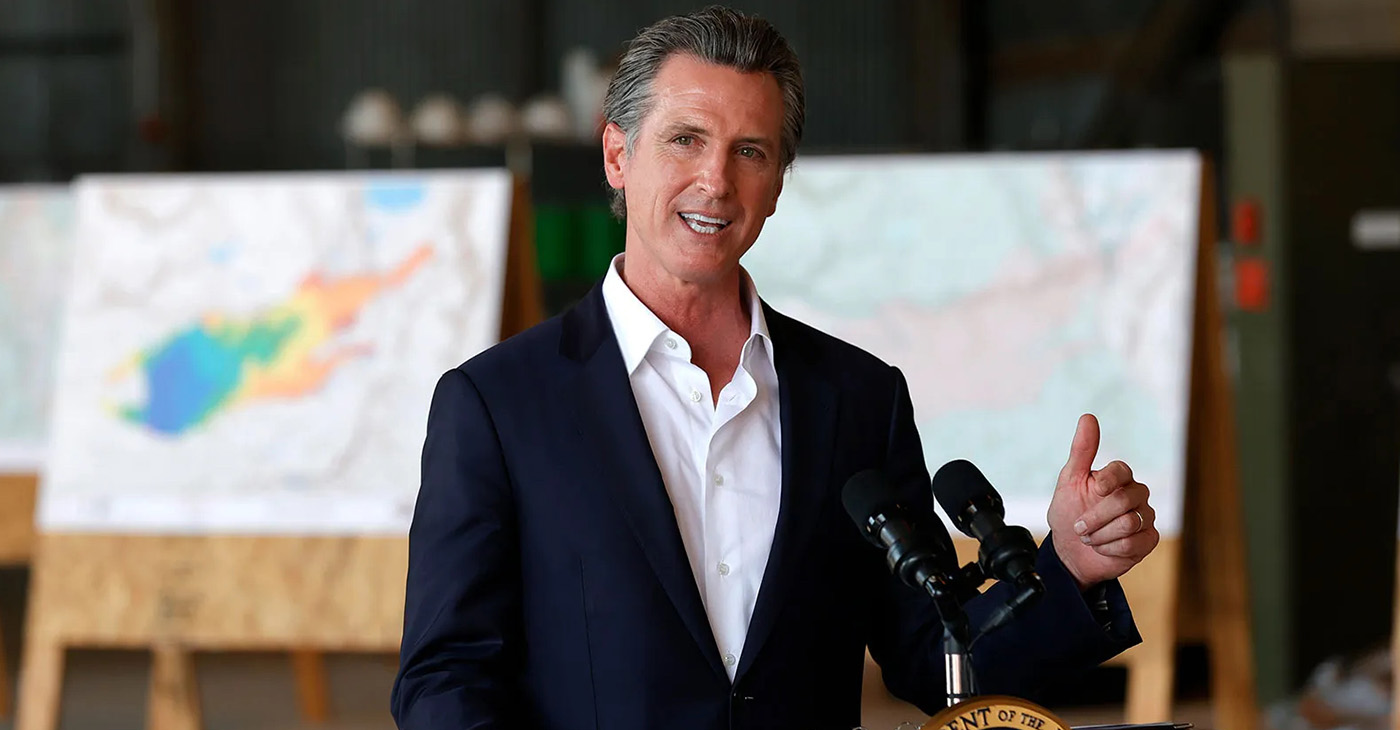
By Joe W. Bowers, California Black Media
In a recent video address, Gov. Gavin Newsom shared key moments that shaped California in 2024. He emphasized achievements in tourism, technology, public safety, and environmental resilience while underscoring the state’s ability to tackle challenges head-on.
Newsom opened by recounting his announcement atop the Golden Gate Bridge of $150.4 billion in record-breaking visitor spending. He reflected on signing a bill with singer Demi Lovato to protect young content creators from financial exploitation. He celebrated the Olympic flag transfer ceremony, signifying California’s preparation for the 2028 Games in Los Angeles.
Focusing on innovation, Newsom praised NVIDIA CEO Jensen Huang for his leadership in advancing generative AI. He showcased the transformation of an abandoned mall into a quantum computing center in L.A. that addresses global challenges.
He also highlighted the ARCHES coalition’s work on green hydrogen, aiming to decarbonize California’s industries.
Newsom emphasized California’s leadership on clean transportation with over 2 million electric vehicles sold and a statewide network of 150,000 public chargers. He spoke about joining Speaker Emerita Nancy Pelosi to celebrate the long-awaited electrification of Caltrain, linking San Francisco to San Jose.
In climate resilience, Newsom spotlighted removing the Klamath Dam, the largest project in U.S. history, restoring salmon migration and tribal lands. He discussed agreements with Italy and Pope Francis to address greenhouse gas emissions and praised the legislature’s action to increase transparency and hold oil companies accountable for gas price spikes.
Turning to health, housing, and education, Newsom outlined progress on Proposition 1 to improve mental health care, legislative efforts to increase housing construction, and the expansion of universal free school meals for all public school students.
Public safety highlights included combating fentanyl trafficking, expanding the California Highway Patrol, and addressing organized retail theft through new legislation.
Newsom also celebrated the state’s balanced budget for the current and upcoming fiscal years. He joked about his detailed budget presentations as his “yearly Super Bowl,” highlighting the importance he places on fiscal responsibility.
The Governor closed by reflecting on 2024 as a year defined by resilience and optimism, crediting California’s ability to navigate polarization and overcome challenges. He emphasized the importance of preserving California’s values of innovation and inclusiveness while continuing to invest in communities, infrastructure, and equity as the state looks ahead to 2025.
Activism
After Losing All, Black Fire Victims File a Lawsuit; Seek a Way Forward
Zo Williams, an author, radio host and of Altadena told California Black Media (CBM), “My childhood is gone. The city will forever be changed by this horrific event.” Like Williams, many of Altadena’s Black residents are confronting the devastating loss they’ve just experienced and exploring what steps they need to take to move forward.
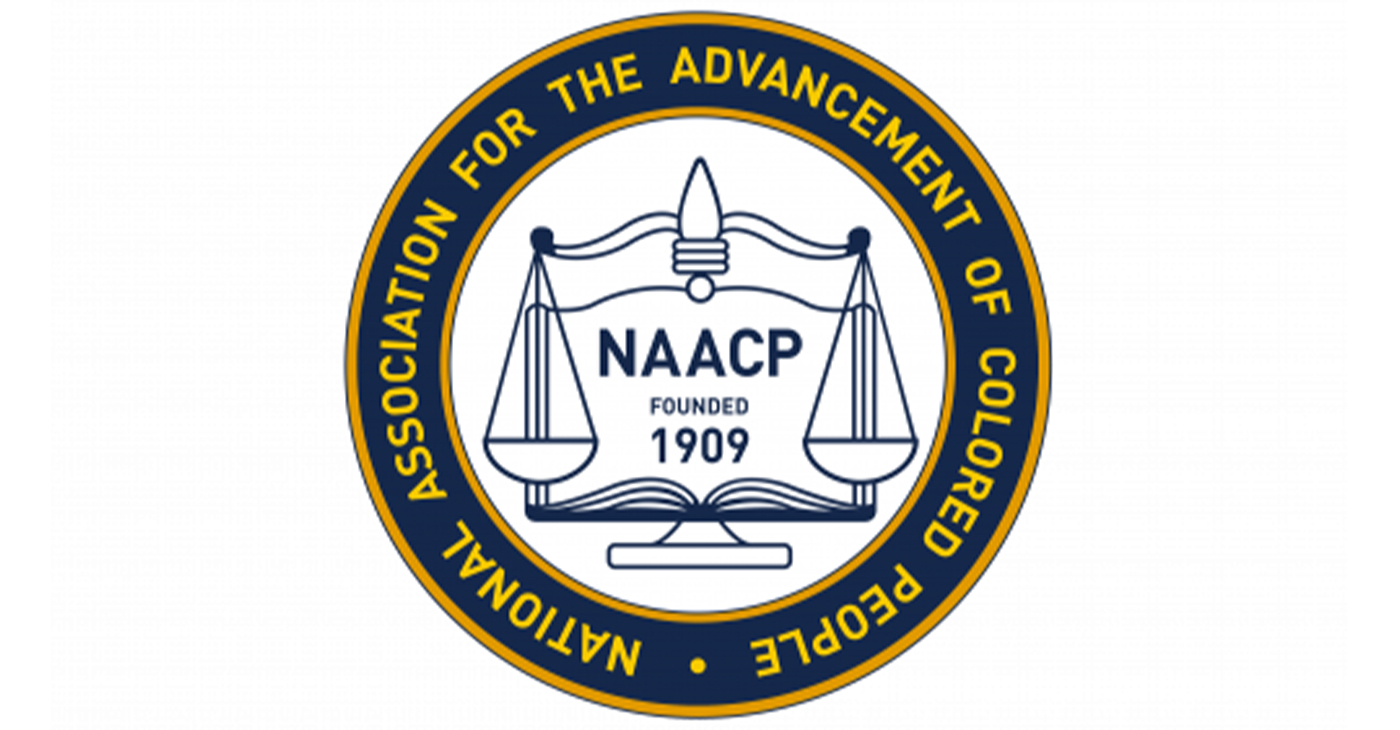
By Reginald S. Webb, Jr., California Black Media
On Jan. 7, when the Eaton fire ignited in the foothills of Eaton Canyon in the San Gabriel Mountains. Fueled by wind gusts of 80 to 100 miles per hour and dry weather conditions, the fire forced the evacuation of most of Altadena’s 43,000 residents.
Among them were thousands of Black families and individuals who have lived in the racially diverse hillside suburb for generations. Blacks make up about 18% of Altadena’s population and their homeownership rate of more than 80% far outpaces other places in the state and country.
A few days later, many of the Altadena evacuees returned to smoldering or completely burned down remains of their homes destroyed in raging fires that have killed 17 people, charred over 14,000 acres, and damaged 9,300 homes, businesses, places of worship and more.
Zo Williams, an author, radio host and former resident of Altadena told California Black Media (CBM), “My childhood is gone. The city will forever be changed by this horrific event.”
Like Williams, many of Altadena’s Black residents are confronting the devastating loss they’ve just experienced and exploring what steps they need to take to move forward.
On Jan. 14, the California-Hawaii State Conference of the NAACP held a virtual town hall to advise fire victims on their legal options. The event was organized in partnership with the law firm Singleton Schreiber.
The NAACP and Singleton Schreiber have filed a lawsuit against the power company Southern California Edison. The complaint accuses the power utility of starting the fire due to the company’s failure to take “adequate precautions” and improper maintenance and management of electrical equipment it owns.
Gerald Singleton, Managing Partner of the law firm, told CBM, “After a disaster occurs sometimes, people don’t know where to go for resources. The NAACP is on the ground guiding people in the right direction.
The NAACP and Singleton Schreiber, the nation’s leading and largest fire litigation practice, have scheduled a second town hall for fire victims on Jan. 21.
On Jan. 17, a town hall was held at a Pasadena Church in Pasadena. Political and civic leaders, businessowners, grieving residents and more came together to share information, reflect on the past, talk about the way forward and assess the damage from the blaze that CalFire has described as the second most destructive wildfire in California’s history. The deadliest and most destructive fire in California history was the Camp Fire, which broke out in Butte County in 2018, claimed 85 lives and caused damage totaling $16.65 billion.
The Eaton fire destroyed important pieces of Southern California’s Black history. The city of Altadena was one of the first places in Southern California where Black families were allowed to buy homes in the Los Angeles area.
Pastor Kerwin Manning of Pasadena Church says he didn’t sustain damage to his church or his house but, he and his wife have not been able to return home since they evacuated on Jan. 7. Other members of his congregation were not so fortunate. Seventeen of them lost their homes.
Manning says he’s unofficially calling the recovery process, “Operation Beauty Will Rise.”
He quotes Isiah 61:3, “To provide for those who grieve in Zion — to bestow on them a crown of beauty instead of ashes.”
-

 Activism2 weeks ago
Activism2 weeks agoWe Fought on Opposite Sides of the Sheng Thao Recall. Here’s Why We’re Uniting Behind Barbara Lee for Oakland Mayor
-

 #NNPA BlackPress2 weeks ago
#NNPA BlackPress2 weeks agoRev. Dr. Jamal Bryant’s Black Church Target Boycott Mobilizes 150,000
-

 Activism3 weeks ago
Activism3 weeks agoSan Francisco Is Investing Millions to Address Food Insecurity. Is Oakland Doing the Same?
-

 #NNPA BlackPress2 weeks ago
#NNPA BlackPress2 weeks agoRecently Approved Budget Plan Favors Wealthy, Slashes Aid to Low-Income Americans
-

 Activism2 weeks ago
Activism2 weeks agoFaith Leaders Back Barbara Lee for Mayor, Criticize Candidate Loren Taylor for Dishonest Campaigning
-

 Activism3 weeks ago
Activism3 weeks agoOakland Post: Week of March 12 – 18, 2025
-

 Activism2 weeks ago
Activism2 weeks agoGroup Takes First Steps to Recall District Attorney Diana Becton
-

 #NNPA BlackPress3 weeks ago
#NNPA BlackPress3 weeks agoPRESS ROOM: The Urban One Podcast Network Announces Los Angeles Wildfires Podcast, ‘Altadena: After the Fire’





